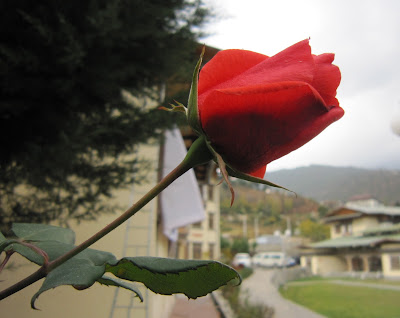My signature is crap and sloppy
as hell. It’s very tiny and looks like scribble on the wall by kid. Its shape is
even more terrible and it, surely, will disgust you. Nor, it really
represents my full name.
If the signature was a snapshot
of our personality, then I am the man with stinking attitude and demented character.
Look at my signature below, feel disgusted and call me, careless, moron or asshole or
kutta, anything you like. I will tolerate this time, at least for my crap signature.
Pic: Not only terrible, inconsistent too
The funny thing is that I’ve neat handwriting-perhaps-the best handwriting you would ever see. My school or college mates used to call it ‘computer handwriting’ and ‘calligraphy in the old manuscripts’.
But here is what weird you would see. After I took civil service job, I’ve been signing lots of stuff for work. My signature has significantly evolved over time. Sad, it has further deteriorated and become even more inconsistent. I loathe it so much as I do to those bogus politicians.
I never got the impression my signature was a big deal until last month. You’d be surprised to hear this. The teller of Bank of Bhutan stopped the transaction and looked at me suspiciously. She compared the signature I signed on the withdrawal form to the original signature card of my account. My signature didn’t match. I had to produce my ID.
Many times I attempted to redevelop my signature. But I admit that a person like me can never write a good signature. I lack vision and creativity in developing a good signature.
The funny thing is that I’ve neat handwriting-perhaps-the best handwriting you would ever see. My school or college mates used to call it ‘computer handwriting’ and ‘calligraphy in the old manuscripts’.
But here is what weird you would see. After I took civil service job, I’ve been signing lots of stuff for work. My signature has significantly evolved over time. Sad, it has further deteriorated and become even more inconsistent. I loathe it so much as I do to those bogus politicians.
I never got the impression my signature was a big deal until last month. You’d be surprised to hear this. The teller of Bank of Bhutan stopped the transaction and looked at me suspiciously. She compared the signature I signed on the withdrawal form to the original signature card of my account. My signature didn’t match. I had to produce my ID.
Many times I attempted to redevelop my signature. But I admit that a person like me can never write a good signature. I lack vision and creativity in developing a good signature.
However, according to the
experts, my signature has all the good traits to reveal. They are below:
1. My smaller size signature
indicates that I’ve less desire.
2. My signature which is
completely different from the usual writing shows that I’m introvert and do not
desire to disclose everything about me.
3. My filthy signature tells that I love to keep
things in private and desire to keep my true identity unknown.
4. A straight line under my
signature reveals that I’m a self-reliant and believe in following rules and
traditions.
5. The three dots at the end of
my signature reveal that I’m very ambitious.


















